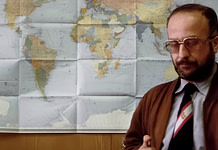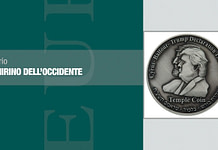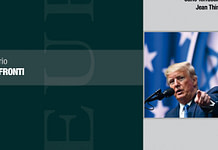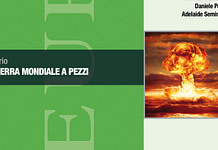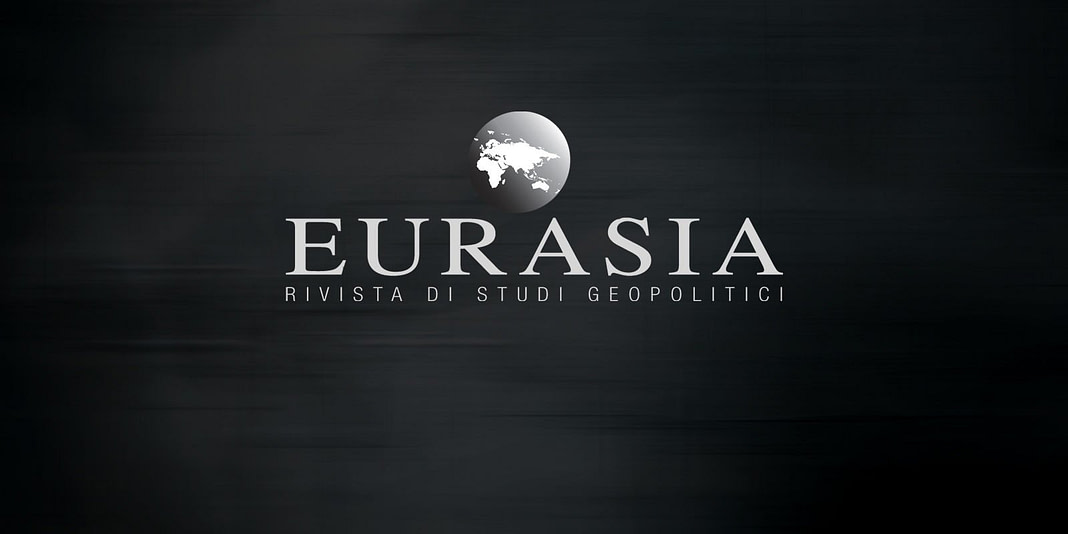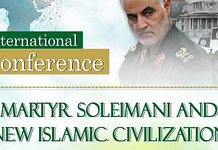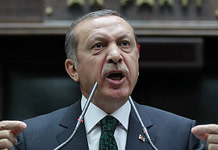Interview by Tiberio Graziani (editor of Italian geopolitical journal Eurasia) to Muratbek Imanaliev, Shanghai Cooperation Organization Secretary-General.
On 15 June 2011, the tenth anniversary of the establishment of the SCO will occurr. Cold you please, synthetically, describe the main objectives of the SCO?
The Shanghai Cooperation Organisation is a permanent intergovernmental international organisation, creation of which was proclaimed on 15 June 2001 in Shanghai by China, Russia as well as four Central Asian states – Kazakhstan, Kyrgyzstan, Tajikistan and Uzbekistan. The principal goals of the SCO are strengthening mutual confidence and good-neighbourly relations, promoting sufficient cooperation in politics, trade and economy, science and technology, as well as culture, education, tourism and other fields. Joint efforts to maintain and ensure peace, security and stability in the region, combat terrorism and trafficking of narcotics as a key threat to the regional stability, as well as to move towards the establishment of a new, democratic, just and rational political and economic international order are the main political objectives on the Organisation’s agenda.
The past decade has been marked by establishment and successful development of institutions and mechanisms that is regarded as a major achievement in terms of the SCO’s structural formation. These institutions, first and foremost, include the Heads of State Council and the Heads of Government Council as the top decision-making bodies, as well as other mechanisms of meetings of heads of concerned ministries and departments.
The SCO has two permanent bodies – the Secretariat in Beijing and the Regional Counter-Terrorism Structure in Tashkent. The Counter-Terrorism Structure is responsible for interaction of the member states in counterterrorism and related activities.
The year 2011 marks the 10th anniversary of the founding of the SCO. It is a landmark event in the history of our Organisation summing up the main results of the past decade – effective struggle against terrorism, separatism and extremism, protection of security, peace and stability, promotion of socioeconomic development in the Central Asian region, signing of a series of treaties and agreements aimed to strengthen cooperation among the member states. The most strategically important documents include the Shanghai Counterterrorism Convention (2001), the Agreement on cooperation in the field of fighting against illegal circulation of narcotics and its precursors (2004), and the Treaty on long-term cooperation, friendship and good-neighbourly relations (2007).
During the past ten years, the SCO has become an institution where the tensions among the various member countries have been resolved and contained. What particular strategy did the SCO adopt to reach such result?
The SCO members put “the Spirit of Shanghai” at the center of their long-term process of cooperation. Mutual trust and benefit, equality, respect for the diversity of cultures and aspiration towards common development are the core values that bind us together and helped us to bravely face up to the challenges and difficulties of the past decade.
The successes achieved by the SCO are an effective response to the theory of so-called “clash of civilizations”. However, some problems remain in relation to the spread of drugs in Central Asia and the pervasive U.S. interference in internal affairs to some member states. What are the countermeasures adopted by the SCO?
The SCO’s own experience clearly proves that this theory is nothing less than an exaggeration. The best solution to avoiding “the clash of civilisations” in conditions of ever increasing globalisation would be a harmonious gradual mutual penetration and interdependence, including cultural and civilisational interdependence. But societies are not always ready for this kind of transformation. The more productive will the contacts based on mutual respect and due regard for each other’s interests be, the faster and less painful will the process of mutual acceptance develop. The SCO can be seen as a good example of a regional international organisation in which mutual respect of sovereignty, independence, territorial integrity and inviolability of state borders, non-aggression, non-interference in internal affairs, non-use of force or threat of it, full equality etc, are the priority principles underpinning its existence. Besides that, cultural and humanitarian cooperation as well as people-to-people exchange allow the SCO members to gain better knowledge about the history, traditions and customs of our peoples. This very fact represents a solid contribution to strengthening mutual respect and understanding, cementing good-neighbourly relations, friendship and cooperation. Our Organisation is open for interaction with other states and international organisations, who stand ready to work towards greater peace and prosperity in Central Asia.
In your opinion, in the next decade the SCO, along with other institutions such as the Eurasian Economic Community and the CSTO, will contribute to the geopolitical integration of Eurasia?
We are confident that the SCO will further contribute to the integration politics of Eurasia. Priority importance is being attached to the development of economic cooperation. Against the backdrop of globalisation challenges this seems to be the necessary precondition for ensuring a secure and problem-free environment in the SCO region as well as facilitating the implementation of social reforms. Comprehensive approach proceeds from the understanding that ensuring security and preventing threats to stability depends on a long-term economic prosperity of its member states. For this very reason we adopted the Programme of multilateral trade and economic cooperation which has a long-term significance. It envisages the achievement in the foreseeable future of free movement of goods, capital, services and technology in the region. In other words, in the long run we shall have a common economic space with single rules to be observed. This goal is a major step towards gradual economic integration between our member states.
The inclusion of Iran, India, Pakistan and Mongolia within the SCO seems to be delayed. Why?
Expert-level negotiations on the SCO expansion were launched two years ago and resulted in the signing of the Regulations on Admission of New Members to the SCO at the 2010 summit in Tashkent. One should bear in mind that this is a long-term process that should be well-prepared and calculated, as it requires further formulation of relevant documents and formation of the legal framework needed for states to apply for membership. So far we have received membership requests from a number of countries that shows the international community’s growing interest in the SCO activity and underlines its prestige.
Europe and Japan are two areas which, although belonging to the Eurasian continental mass, still constitute the eastern and western suburbs of the so-called Western system, led by U.S., the large bi-oceanic nation. Moreover, from a geostrategic point of view, they are the bridgeheads of U.S. laid on the Eurasian space. In the frame of the new multipolar system, Europe and Japan, by establishing special relations with Russia and Eurasian institutions such as the SCO, could be reintegrated into their natural geopolitical continental space? What is your opinion to this regard?
The process of globalisation keeps on evolving, and in the modern world interdependence and interaction between nations is becoming the necessary tool for ensuring development and achieving common prosperity. All our member states are enjoying steady, mutually beneficial bilateral relations with EU countries, Japan as well as with the United States. As a matter of fact, Europe and Japan are already becoming reintegrated into its natural geopolitical continental space. We have witnessed EU’s growing links with Eurasia, and Japan keeps boosting ties with European countries as well. As regards the SCO, its member states represent a natural part of this larger process of reintegration. For example, the SCO has drawn up plans to revive the Great Silk Road as part of a new multipolar system. It is noteworthy that unlike other alliances or regional organisations of the past, the SCO has introduced a totally new approach, free from the bloc mentality and aimed at bringing on board everyone who shares the universal values of peace, security and common development. We hope to make a greater contribution to the promotion of these values in the Eurasian region, and welcome our partners from Europe and Asia to engage in beneficial interaction under the auspices of the SCO.
The new world scenario seem to be characterized by the costitution of large geopolitical areas. Under some aspects, we are living in the Era of Continents. What do you think about the attempt of some South American Nations – particularly, Argentina, Venezuela, Brazil – to achieve the integration of the Latin America? In your opinion, Eurasia and South America could be the pillars of the new multipolar system?
This is a natural phenomenon, and completely fits in the broader multipolar trends of globalisation. We are living in the age of increasing globalisation and regional reintegration, and in this regard the SCO has much to learn from other regional organisations in Eurasia like the CIS, ASEAN, EU or ECO. The development of regional cooperation of SCO member states in the framework of the RIC and BRIC is worth mentioning as well. It undoubtedly contributes to the creation of a new multipolar or, strictly speaking, “multipillar” system in the modern world. It is always hard to predict if one will manage to achieve the integration of the whole Eurasian continent in the foreseeable future, but the SCO does possess a unique geopolitical advantage by promoting closer interaction between China, Russia, countries of Central Asia, South Asia and the Middle East, and thus acting as a bridge linking Europe and Asia. In the past 10 years the SCO has succeeded in the development of a dialogue between civilisations, laid firm foundations for long-tem regional integration in the new geopolitical environment, and will certainly continue to implement its potential for the better future of nations across the Eurasian region in the second decade of its existence.
Questo articolo è coperto da ©Copyright, per cui ne è vietata la riproduzione parziale o integrale. Per maggiori informazioni sull'informativa in relazione al diritto d'autore del sito visita Questa pagina.








